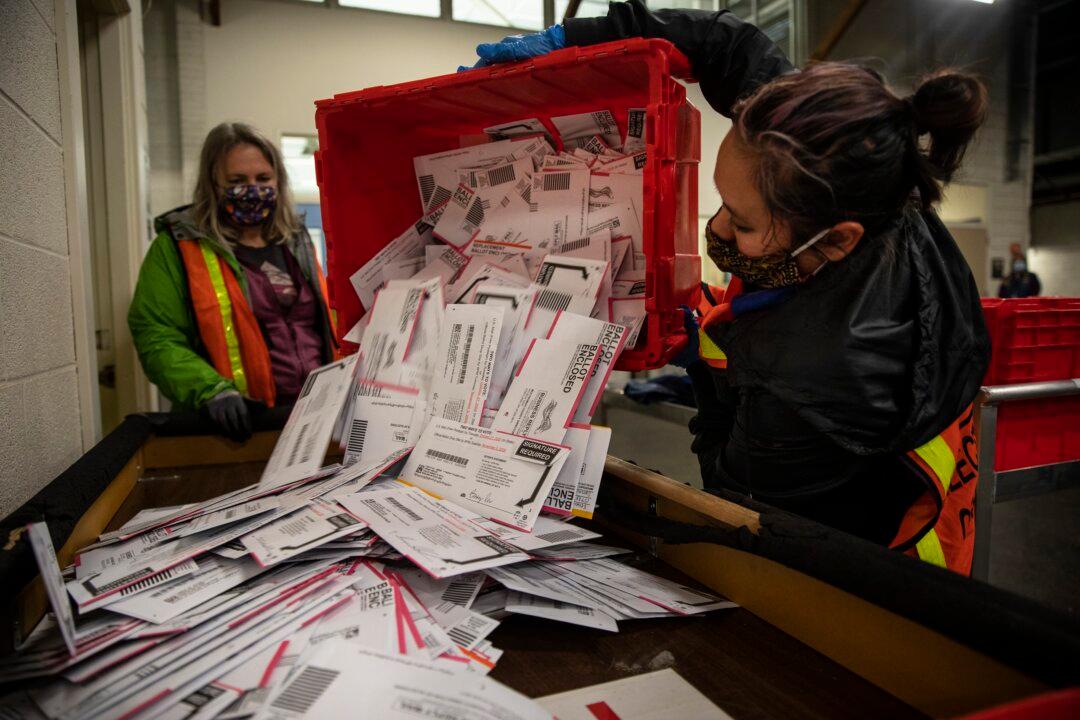A new survey reveals that the majority of Americans do not trust the integrity of elections in the country.
According to a poll conducted among likely General Election voters between Nov. 16–20 by the Trafalgar Group for Convention of States, 56.8 percent of the respondents indicated they only somewhat trust (17 percent), somewhat distrust (17.9 percent), or strongly distrust (21.9 percent), that America’s elections are fair and accurate. Only 43.2 percent of American voters said they strongly trust that America’s elections are fair and accurate.





